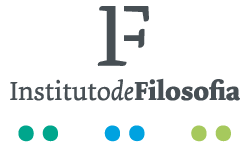Kant and the First Person: Does the “I” of “I think” refer? | Eylem Özaltun
From: 2022-05-16 To:2022-05-20
Thematic Line
Modern & Contemporary Philosophy
Research Group
Mind, Language & Action
Kant and the First Person: Does the “I” of “I think” refer?
Eylem Özaltun (Koç University, Istanbul)
16 de maio (2ª feira) | 10h00 | Sala do Departamento de Filosofia (Torre B – Piso 1)
19 de maio (5ª feira) | 16h30 | Sala 111
20 de maio (6ª feira) | 18h30 | Sala de Reuniões 1
Faculdade de Letras da Universidade do Porto
In late twentieth century analytic philosophy, under the influence of Evans and Strawson, self-consciousness was studied by giving an account of self-reference. In this approach, to study self-consciousness is to study a manner of thinking of an object, or a form of reference. Strawson’s analysis of “I think” is also informed by such approach to self-consciousness. According to Strawson, Kant’s basic insight is the thought that ascriptions of states of consciousness to oneself do not require a personal identity criterion.
This very influential reading of Kant covers up important insights that led Kant to distinguish apperceptive I from the I of inner sense.
These insights cannot be recast in terms of criterionless reference, since, I argue, the apperceptive I does not refer. In this paper I aim to answer the following question: What is at stake in insisting that “I” of “I think” does not refer? And the short answer to this question is the possibility of objective thought in general. I claim that for Kant for there to be an objective thought and rational discussion “I”of “I think” cannot be a referring expression.
Eylem Ozaltun in her own words: After completing a BSc in Mathematics, I switched to Philosophy and completed my Ph.D. in Philosophy in 2013 at Harvard. My dissertation, “Knowledge in Action,” investigates the role of reason and self-knowledge in acting intentionally, and was written under the supervision of Sean Kelly, Richard Moran, and Matthew Boyle. In addition to my dissertation supervisors, Charles Parsons, Warren Goldfarb, and Douglas Lavin influenced my thinking a great deal during my graduate work. John McDowell and Charles Travis were key influencers outside of Harvard. I work on philosophy of mind, with a focus on action because (as O'Schaughnessy puts it) the phenomenon of bodily action set in a public and physical environment is a particularly appropriate place to focus to study mind in this materialistic age. My earlier research was on the possibility of acting, by itself, to be a way of acquiring knowledge of the objective world - so I worked on the object of the agent's non-observational knowledge. My current research lies at the intersection of philosophy of mind and philosophy of language, and investigates self-consciousness both in action and perception and the use of the first-person pronoun in expressing such consciousness. In this investigation I focus on Kant, Frege, Wittgenstein and Anscombe.
A Prof. Eylem Özaltun colabora de forma próxima com o MLAG desde há quase dez anos.
Patrocínio das conferências: Programa Erasmus +
Organização: Sofia Miguens e João Alberto Pinto
Mind, Language and Action Group (MLAG)
Instituto de Filosofia da Universidade do Porto – FIL/00502
